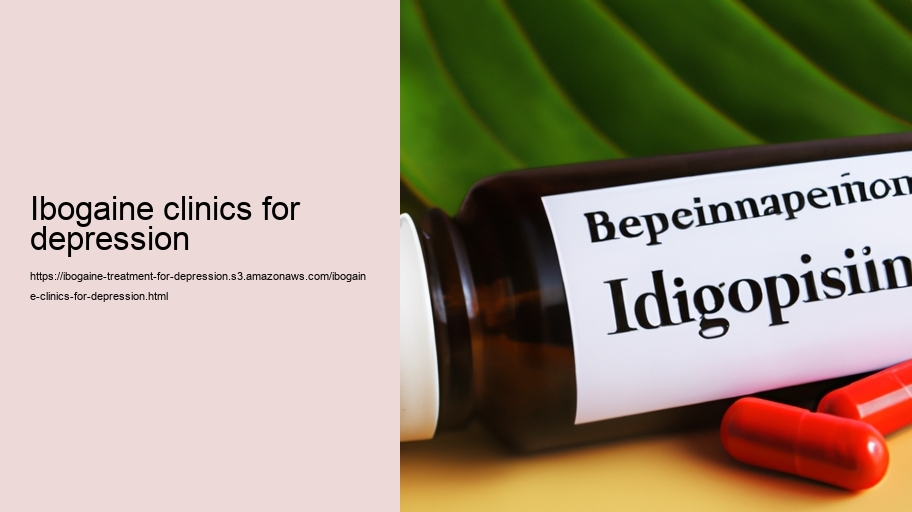Ibogaine Clinics for Depression: A Novel Approach to Mental Health
Depression is a pervasive mental health challenge faced by millions of individuals across the globe. It is a condition that can deeply affect one's emotions, physical health, and overall quality of life. Traditional treatments for depression typically include psychotherapy, medication like antidepressants, and lifestyle interventions. However, not all individuals respond to these conventional methods, leading some to seek alternative therapies. One such alternative approach that has gained attention in recent years is ibogaine treatment offered at specialized clinics.
Ibogaine is a naturally occurring psychoactive substance derived from the root bark of the African shrub Tabernanthe iboga. Historically used in spiritual ceremonies by indigenous West African cultures, it has since been investigated for its potential therapeutic benefits in treating addiction and various psychiatric conditions including depression.
The foundation of ibogaine therapy lies in its unique ability to facilitate profound psychological introspection and emotional processing. Unlike traditional antidepressants that often aim to alleviate symptoms by altering neurotransmitter activity within the brain, ibogaine works on resetting and rebalancing brain chemistry at a fundamental level. It interacts with multiple neurotransmitter systems—including serotonin, dopamine, opioid receptors—and modulates neuroplasticity pathways which may contribute to its therapeutic effects.
Clinics offering ibogaine treatment for depression have emerged as havens for those seeking an intensive intervention that promises rapid relief from depressive symptoms. These facilities are usually located outside of countries where ibogain is banned or strictly regulated such as the United States; hence many are found in Latin America or other regions where regulations may be more accommodating.
A typical session at an ibogain clinic involves careful screening of candidates because the substance can have serious cardiovascular risks and isn't suitable for everyone. Once deemed appropriate for treatment, clients undergo a medically supervised administration of ibogaine which induces an altered state of consciousness lasting several hours. During this phase, individuals might experience vivid visions or memories that allow them to confront deep-seated emotional issues or traumas—factors often underlying their depressive states.
Patients report a variety of outcomes following an ibogaine session; some describe instant alleviation from despair while others recount gradual improvements over time. Success stories frequently involve narratives about personal epiphanies or cathartic releases that pave the way toward healing—a stark contrast to the often sluggish progress associated with standard antidepressant medications.
Despite these promising anecdotes, scientific research into the efficacy and safety of ibogain therapy specifically for depression remains limited but growing steadily. The existing body of evidence mostly comprises small-scale studies or case reports rather than large randomized controlled trials—the gold standard in clinical research necessary for widespread medical acceptance.
Nevertheless, interest in this unconventional therapy continues unabarkedly due partly to testimonials shared via word-of-mouth or through online communities dedicated to discussing psychedelic-assisted therapies. Iboga clinics play a pivotal role here by offering structured environments equipped with medical oversight crucial when dealing with powerful psychotropic substances such as iboga alkaloids.
Critics argue that without robust empirical validation and better regulation surrounding practice standards at these clinics there remains considerable risk involved both psychologically and physically when turning towards such experimental treatments especially given how vulnerable people suffering from severe depression might be when searching desperately for relief but proponents advocate passionately about having access to potentially transformative experiences particularly after conventional avenues have failed them.
In conclusion while excitement around iboga's promise must be tempered with caution due both lack rigorous scientific validation along need ensure patient safety broader conversation ignited regarding innovation mental healthcare approaches undeniable We stand precipice exploring new frontiers medicine invites reconsideration what possible comes tackling complex multifaceted nature human psyche If nothing else burgeoning interest irrefutably signals growing demand more diverse array options those grappling debilitating effects depression — narrative hope itself holds certain kind curative power worthy our collective attention exploration
